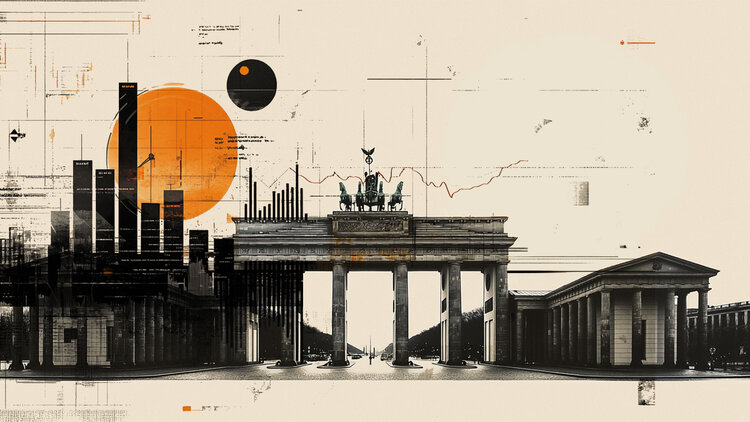A new mural on display in India’s new $110 million Parliament has become an unlikely target of ire among its South Asian neighbours, Pakistan, Nepal and Bangladesh, who seek an explanation from New Delhi.
The mural depicts a map of an ancient Indian civilization spanning what is now Pakistan in the north and Bangladesh and Nepal in the east.
Speaking to reporters earlier this month, Indian Foreign Ministry Spokesman Arindam Bagchi said it portrays the ancient Ashoka Empire and symbolizes “the idea of responsible, people-oriented governance that (King Ashoka) has embraced and propagated”.
But for some politicians in the Bharatiya Janata Party (BJP), which is in power in India, it seems to represent a vision of the future – of “Akhand Bharat” an “undivided India” that would merge the modern country with Afghanistan, Pakistan, Nepal, Bangladesh and Myanmar.
“The determination is clear. Akhand Bharat,” tweeted Parliamentary Affairs Minister Pralhad Joshi, alongside a photograph of the map. “Akhand Bharat in the New Parliament. This represents our powerful and self-reliant India,” tweeted BJP lawmaker Manoj Kotak.
For India’s neighbours, “Akhand Bharat” is an incendiary neo-imperialist concept – long associated with the right-wing Rashtriya Swayamsevak Sangh (RSS), an ideological organization that heavily influences the BJP and believes in “Hindutva”, the idea that India should become the “Home of the Hindus”.
Earlier this month, Pakistan said it was “horrified by the statements” made about the mural.
“The gratuitous assertion of ‘Akhand Bharat’ is a manifestation of a revisionist and expansionist mentality that seeks to subjugate the identity and culture of not only India’s neighboring countries, but also its own religious minorities,” said the ministry spokesman. of Foreign Affairs, Mumtaz Zahra Baloch.
Nepalese politicians also agreed. “If a country like India – which sees itself as an old and strong country and a model of democracy – puts Nepalese territories on its map and displays the map in parliament, that cannot be called fair,” said the opposition leader. , KP Sharma Oli, from according to the Kathmandu Post.
Former Nepalese Prime Minister Baburam Bhattarai warned that the map could trigger an “unnecessary and harmful diplomatic row”.
The controversial mural of ‘Akhand Bharat’ in the recently inaugurated new Parliament building of India may stoke unnecessary and harmful diplomatic row in the neighborhood including Nepal. It has the potential of further aggravating the trust deficit already vitiating the… pic.twitter.com/dlorSZ05jn
— Baburam Bhattarai (@brb1954) May 30, 2023
And last week, Bangladesh asked New Delhi to clarify the situation. “Anger is being expressed in various parts of the map,” said Shahriar Alam, his junior foreign minister.
Responding to a question about the reaction last week, Indian Foreign Minister Subrahmanyam Jaishankar said the issue had already been clarified by India and that it was “not political”.
While India has dismissed its concerns, analysts say calls by BJP politicians to embrace “Akhand Bharat” are dangerous.
They say such appeals encourage extremist groups and are bad news for a constitutionally secular democracy where about 80% of the 1.4 billion population is Hindu and 14% Muslim.
“Many BJP leaders are increasingly making statements to placate the more radical elements of their party, not realizing how that might look abroad,” said Salil Tripathi, a writer in New York.
“These politicians and leaders act like the world isn’t listening. They keep the pot hot, but it’s a dangerous game.”
controversial ceremony
The mural wasn’t the only thing that drew attention when Prime Minister Narendra Modi inaugurated parliament on May 28.
Equally controversial was the ceremony itself, steeped in Hindu religious symbolism, that critics felt shocked by the supposedly secular nature of Indian government affairs.
It also took place on the birthday of the late Vinayak Damodar Savarkar, the man widely credited with developing Hindutva ideology and an early proponent of Akhand Bharat.
Akhand Bharat in New Parliament 🚩
It represents our Powerful & Self Reliant India.
Thank You PM @narendramodi ji#MyParliamentMyPride pic.twitter.com/bjod5UtM12
—Manoj Kotak (@manoj_kotak) May 28, 2023
Leader of the right-wing Hindu Mahasabha group, Savarkar is revered by Modi and the BJP, who credit him with leading India to freedom from British colonial rule.
But critics say it is wrong to honor his birthday, given his stance on Muslims. The Hindu Mahasabha’s website says that, if this gains momentum, it will not hesitate to “force” the migration of Muslims from India to Pakistan.
While the group’s ideas are decades old, it seems bolder about them now. In December 2021, some extremists in the group called for a genocide against Muslims to “protect” India.
Sushant Singh, a senior fellow at the think tank Center for Policy Research, said the groups felt emboldened to make such blatant calls for violence because they “believe they have the backing of the state”.
“That’s because the state clearly believes in its ideology and articulates that ideology,” he added.
nervous neighbors
While the BJP does not overtly describe itself as Hindu nationalist, critics say those tendencies are revealed by its pro-Hindu legislation and the rhetoric of some of its leading figures.
One of the BJP’s most controversial moves came in 2019, when it revoked the semi-autonomous status of the Indian-administered Muslim-majority region of Kashmir, placing it under the direct control of New Delhi.
India has said the measure is aimed at ending separatism and terrorism, which it claims have been aided by Pakistan. Critics said the measure was aimed at encouraging Hindus to settle there.

Skepticism about New Delhi’s motives was stoked by India’s Home Minister Amit Shah when he said the repeal had partially realized Akhand Bharat’s dream – a sentiment echoed by other right-wing politicians.
“We have to see Akhand Bharat’s dream in this life and he started with (this),” said Maharashtra State Deputy Chief Minister Devendra Fadnavis.
Experts say such rhetoric has made India’s neighbors nervous.
“The tragedy is that this kind of narrative coming out of India only reinforces the Pakistani military’s view that there is a threat,” said Pakistani historian Ayesha Jalal.
Fahd Humayun, an assistant professor of political science at Tufts University, warned that statements like these could “impact the national security calculus” of neighboring states.
He added: “In practical terms, the concern is that (these comments) build a brand of Hindu nationalism that has clear expansionist tendencies.”
Source: CNN Brasil
Bruce Belcher is a seasoned author with over 5 years of experience in world news. He writes for online news websites and provides in-depth analysis on the world stock market. Bruce is known for his insightful perspectives and commitment to keeping the public informed.







